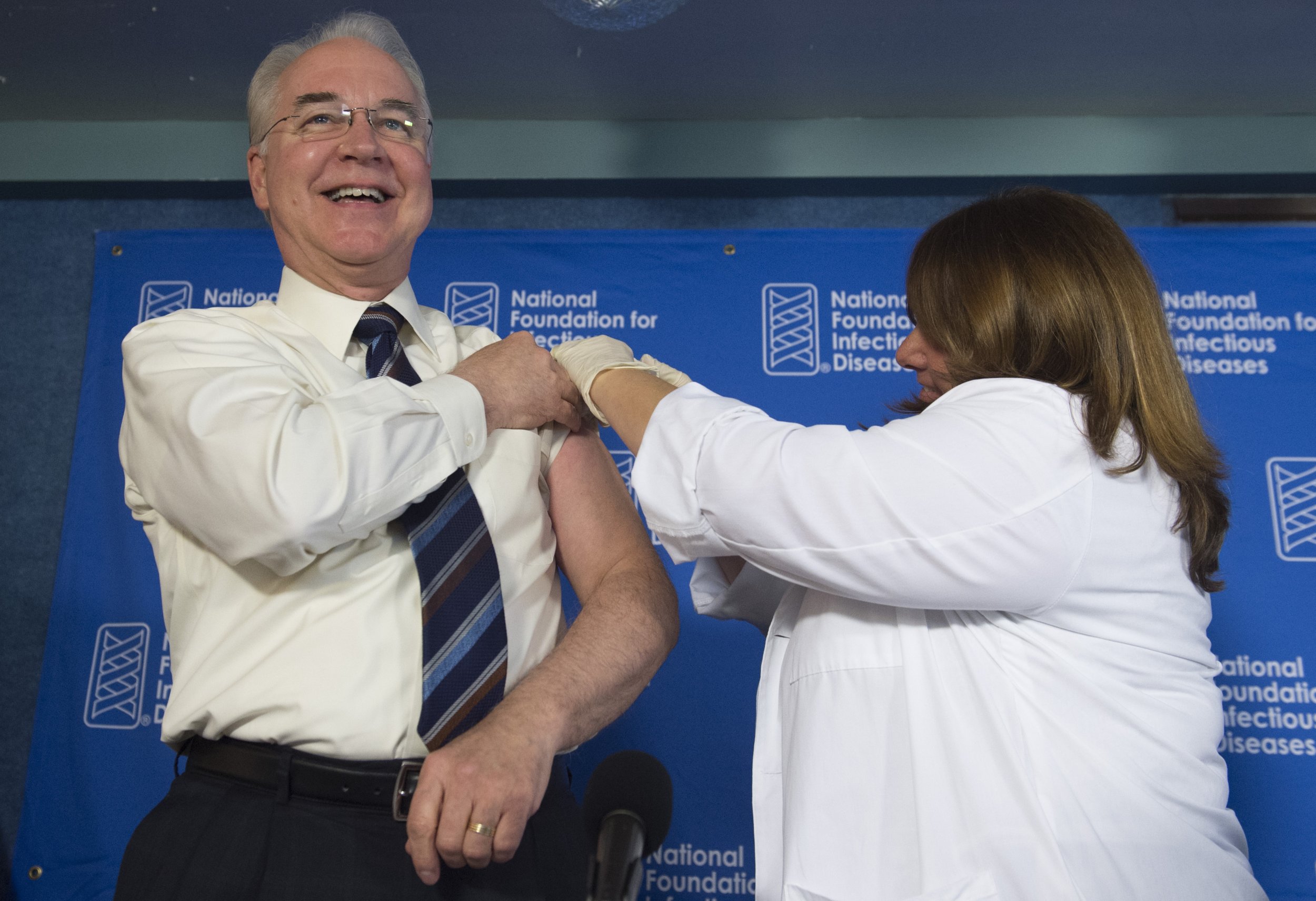
A new vaccine could someday lead to potential lifelong protection against the major strains of flu, according to a new paper published in Scientific Reports on November 2. For now, however, the only ones to see the benefit of this vaccine are mice in labs at the Nebraska Center for Virology.
Flu vaccines are tricky because they have to be recalibrated each year, and vaccine production needs to start at least six months in advance. To figure out how the vaccine should be changed each year, the U.S. Centers for Disease Control and Protection watches to see which flu viruses are around and tries to guess which ones might crop up next.
This system does work—for many people, the benefits of the flu vaccine will outweigh the risks, such as headaches, soreness or allergic reactions. Even our imperfect vaccines may literally save children's lives, according to one 2017 study. However, they could still be much, much better. One recent meta-analysis showed that for adults, the flu vaccine was only 59 percent effective.
Making a Better Flu Vaccine With Genes
To make a better vaccine, the scientists behind last week's paper tried to reverse-engineer a gene similar enough to the ones that all flu viruses carry. The gene they worked with makes a protein called hemagglutinin, which is found on the surface of the flu virus. Each virus strain's hemagglutinin triggers a slightly different immune response based on which one it carries; flu viruses are named, in part, based on how the body will react to a particular hemagglutinin protein.

What the scientists did was essentially take an average of all the genes that encoded for the various hemagglutinin proteins and condense them into one gene. The protein that gene produces should ensure the immune system would recognize all the various flu strains, even though each one has a slightly different version of hemagglutinin. The researchers called this catchall version of hemagglutinin a "consensus antigen."
"At some point in evolution, there was an ancestor, and all the influenza virus strains that are out there evolved from than ancestor. So if we immunize against the ancestor," said Eric Weaver, one of the paper's authors, "then we can hopefully develop immune responses against all the different strains that evolved from that original strain."
The team has been working on this "centralized gene vaccine approach" for several years. In 2015, they published results from other, similar experiments in PLoS One.
New Vaccine More Effective Than Traditional Ones
The protection was better than the traditional vaccines, which included the Fluzone and FluMist vaccines used during 2010 and 2011. In fact, none of the mice that were immunized with the traditional vaccines survived the exposure tests, despite the mice having levels of antibodies in their blood that should have protected them. Most of the mice vaccinated with the researcher's new vaccine survived, though some that got a low dose of the new vaccine also died.
In theory, this technique really ought to work in humans. "This dose is very translatable to humans and indicates just how effective the vaccine is against extremely pathogenic influenza viruses," the authors wrote. "It is very possible that a vaccine similar to the one described in this study could provide complete and life-long protection against all known human influenza variants."
Lifelong Flu Shot for Humans? Not Yet
However, the vaccine won't be ready for human use for quite some time. "We still have quite a ways to go in small animal models," Weaver said, and his team wouldn't be able to move the vaccine to human clinical trials on their own. They'd need partners, Weaver said, "whether it's academic or industry partnerships."
And though this vaccine might take some of the guesswork out of annual vaccine prep, it still wouldn't be perfect. The virus would probably continue to evolve, making consensus antigens useless over time. "Virus surveillance and monitoring would still be critical to controlling outbreaks," the authors noted in the paper.
Uncommon Knowledge
Newsweek is committed to challenging conventional wisdom and finding connections in the search for common ground.
Newsweek is committed to challenging conventional wisdom and finding connections in the search for common ground.
About the writer
Kate Sheridan is a science writer. She's previously written for STAT, Hakai Magazine, the Montreal Gazette, and other digital and ... Read more





